
aiESG analysis services are used for the products and services of hap Corporation, which contributes to the development of circular fashion, improving transparency in the complex supply chain of the apparel industry through analysis of the full range of ESG issues.
Client Profile.
Company name: HAP Ltd.https://hap-h.jp/
Industry: apparel
Address.
person in charge
Representative: Mr. Motoi Suzuki
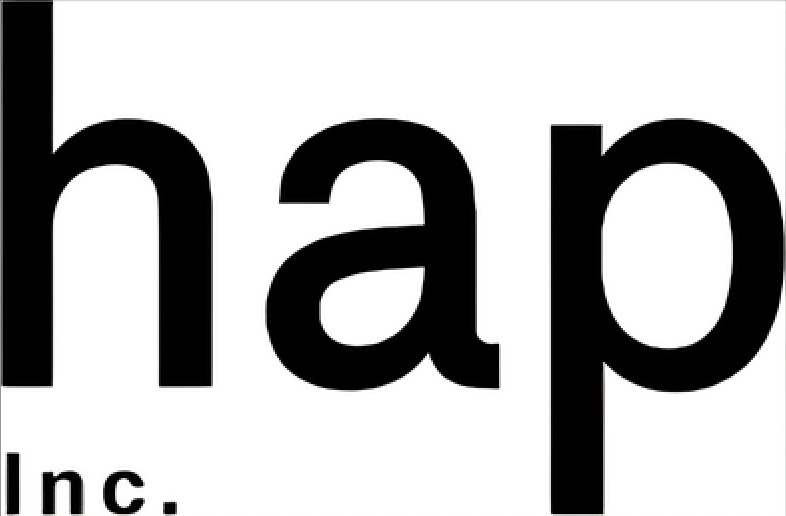
Established in 2006. The company has developed a wide range of businesses, from branded businesses to apparel for environmentally-friendly, comfortable and multifunctional products, and the development of smart textiles and smart wear. Kabaros Layer Technology won the 'Prime Minister's Award' for 'Kabaros Circular Fashion' at the 11th Technology and Management Innovation Awards. In its quest to develop technologies and services that will lead to the development of circular fashion, hap utilises aiESG's analysis services. aiESG's comprehensive analysis has increased transparency in the supply chain and is furthering its efforts to realise true circular fashion.
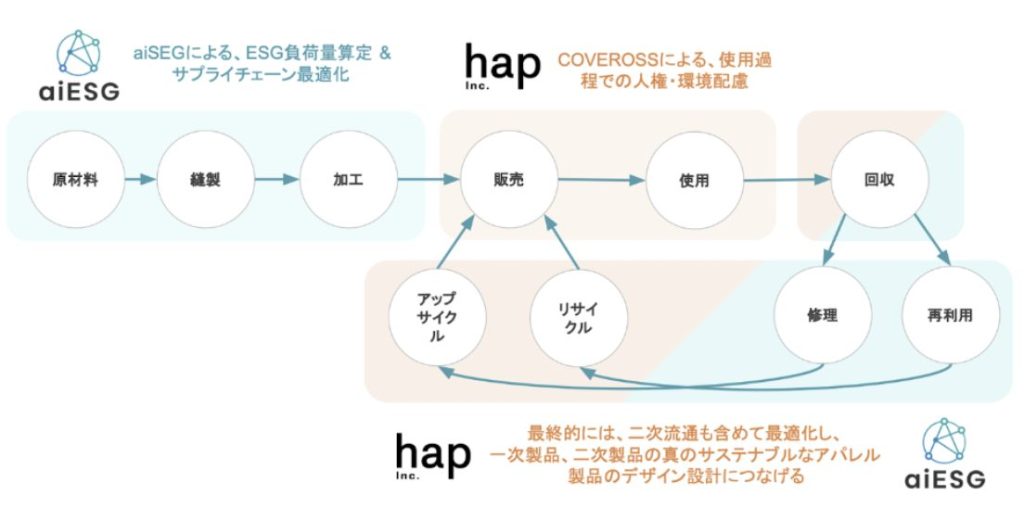
Figure 1 Scheme of collaboration between aiESG and hap
Background to working on circular fashion, deciding factors in choosing aiESG.
~aiESG was chosen because it was able to provide comprehensive ESG analysis covering the entire supply chain~.
-- Could you tell us about the background to the founding of the company hap by Mr Suzuki?
Mr Suzuki: When I was working for a textile trading company, I often went to inspect production factory sites. There, I witnessed harsh working conditions, including small children working as a matter of course. While I was aware of the problems here, what triggered a fundamental change in my thinking was the Rana Plaza collapse in Bangladesh in 2013. The accident, in which a building housing a sewing factory collapsed, killing more than 1,100 people, has been called the worst industrial accident in the history of fashion.
After witnessing this reality, the company decided to add the added value of circular fashion and develop it under the theme of 'something that can be worn by loved ones and family members', which led to the founding of hap.
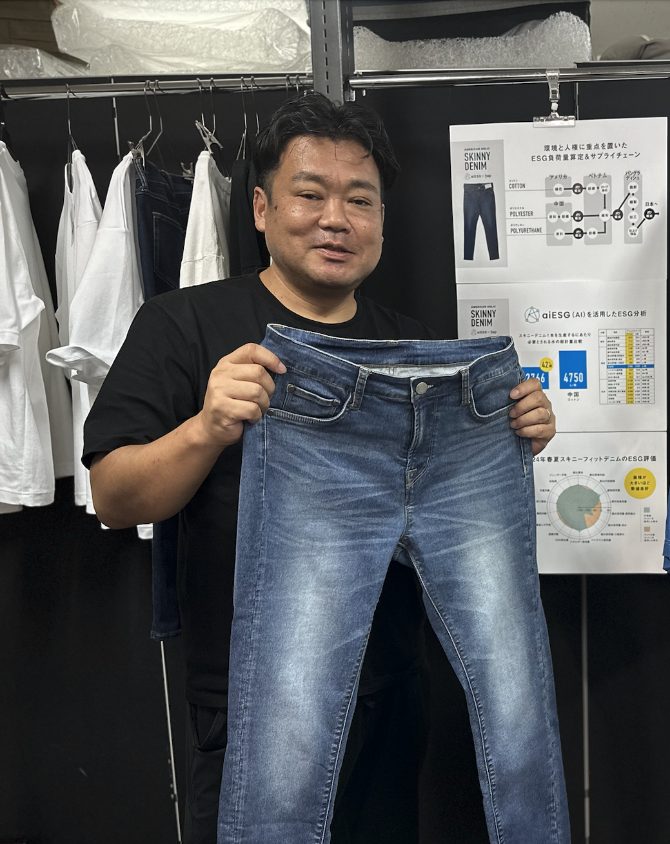
Photo: Mr Motoi Suzuki, representative of hap
-- Can you tell us about the background to your company's SDG-aware product development and COVEROSS circular fashion initiatives?
Mr Suzuki: We have been developing products based on the SDGs from early on in order to address climate change and environmental issues. An example is the development of COVEROSS, a material developed in consideration of people and the environment (seehttps://hap-h.jp/business/coveross/) COVEROSS focuses on circular fashion, using multifunctional material technology to enhance recyclability and durability.In 2019, COVEROSS materials were exhibited at fashion and bedding trade shows in France and Germany, where European brands asked us about international certification and specific We received many questions about sustainability and ESG assessments. This experience made us strongly aware of the need for sustainable product development and the importance of promoting ESG-aligned products.

Figure 2: Deodorising, water repelling and heat shielding functions on hand-held clothing
COVEROSS LAUNDRY Service.
-- Before using aiESG, what were your challenges in terms of ESG and sustainability? What were the challenges?
Mr Suzuki: From an ESG perspective, it was difficult to comprehensively quantify the environment, human rights and economic activities of the entire supply chain. The apparel supply chain is complex and global, so the challenge was that there were no services that could provide concrete quantification. It was therefore difficult to transparently explain to stakeholders how ESG standards were being implemented.
-- Why did you choose aiESG and what were the deciding factors?
Mr Suzuki: We chose aiESG because of its ability to provide comprehensive ESG analysis covering not only GHG but also the entire supply chain, including water impact, human rights, forced labour and sanitation. In particular, it was superior to other services in that it quantified the environmental and social impact of our complex global supply chain and provided us with concrete measures for improvement. hap was able to compare all ESG aspects, such as which country to source the cotton used in one of our products, skinny-fit denim, from all ESG perspectives. We felt it was the perfect choice as a tool that could give us the tangible evidence of sustainability that we were looking for.
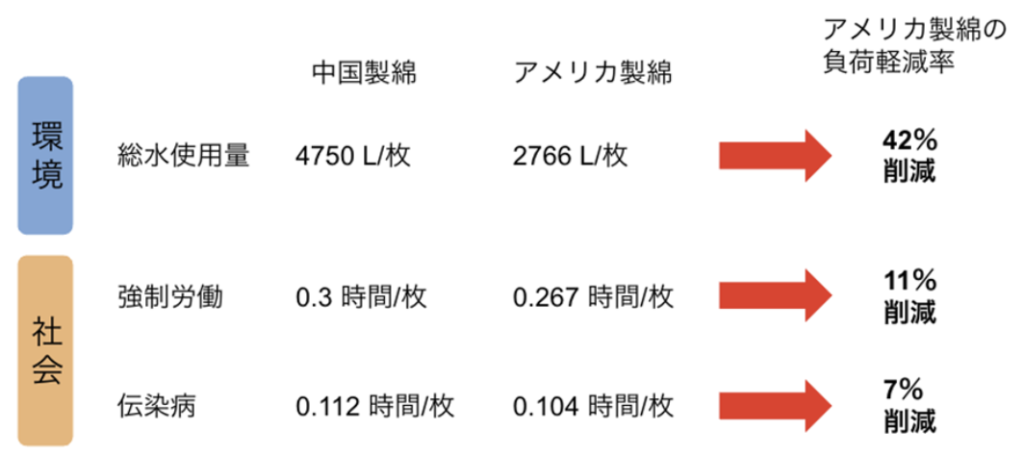
Figure 3. aiESG assessment of hap's denim (excerpts)
-- Have you considered other analysis services besides aiESG?
Mr Suzuki: We considered several other analysis services, but none were as comprehensive as aiESG in addressing the specific needs of the apparel industry. We ultimately chose aiESG because no other service could offer ESG analysis focused on the entire supply chain in particular.
Benefits of aiESG analysis and assessment services: comprehensive analysis increases transparency throughout the supply chain.
-- How have aiESG analysis services helped your company to solve its challenges?
Mr Suzuki: Through aiESG's analysis services, we were able to quantify the environmental impact of each product and clarify which processes in particular need improvement. This has increased the transparency of our entire supply chain and allowed us to take concrete measures to further reduce our environmental and social impact.
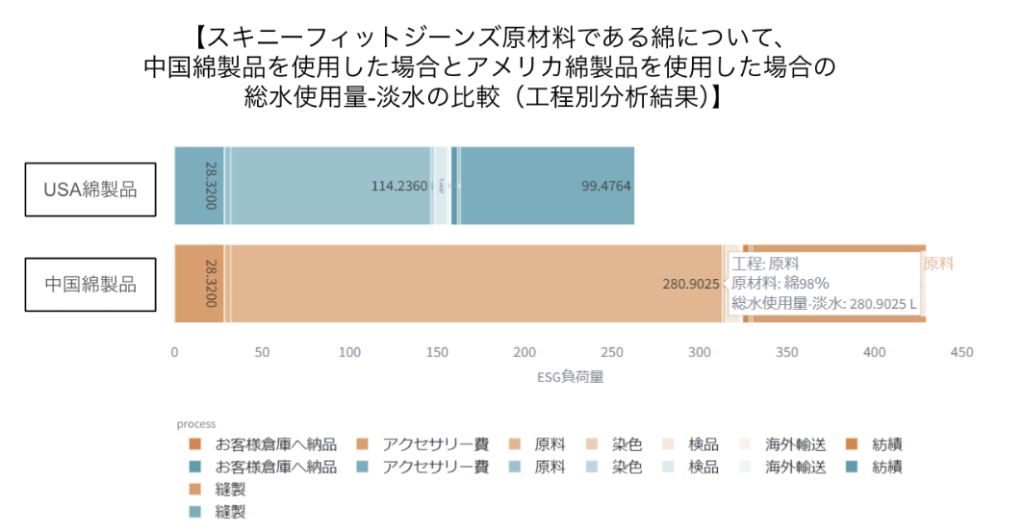
Figure 4 Total water consumption of USA cotton products (blue) and Chinese cotton products (orange) - fresh water Analysis results by process
-- How did you feel about the results of the analysis?
Mr Suzuki: For skinny-fit denim trousers, we have already implemented environmental and human rights impact reduction in the selection of raw materials and processing processes over the last five years. In the process, we found that improvements were needed, such as in the dyeing process. On the other hand, with regard to the Kabalos laundry service, which provides comfort functions, the company received a high overall rating because of the use of sustainable materials and dyeing and function-imparting processes. However, we still found areas for further sustainability improvements, a result that can be taken into account in the next stage of development.
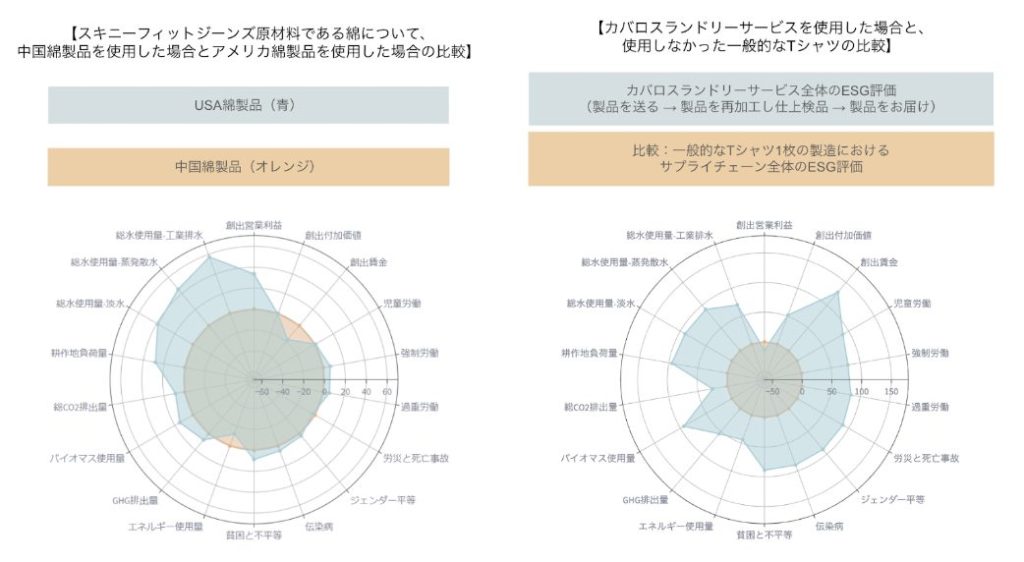
Figure 5 (left) ESG analysis results for skinny fit jeans / Figure 6 (right) ESG analysis results for Kavalos laundry service
-- Have you received any response from your customers or the apparel industry? (If yes, what was the response?)
Mr Suzuki: Collaboration projects with major apparel companies TSI Holdings (Meaningful Continuity) and Stripe International are increasing, and our ESG initiatives are being evaluated. We are also receiving more enquiries about COVEROSS materials and products from overseas, and we feel that global interest is growing. Many of our customers have told us that their trust in products made from sustainable materials has been strengthened.
Looking to the future: developing ESG products and services with an emphasis on sustainability and wellbeing
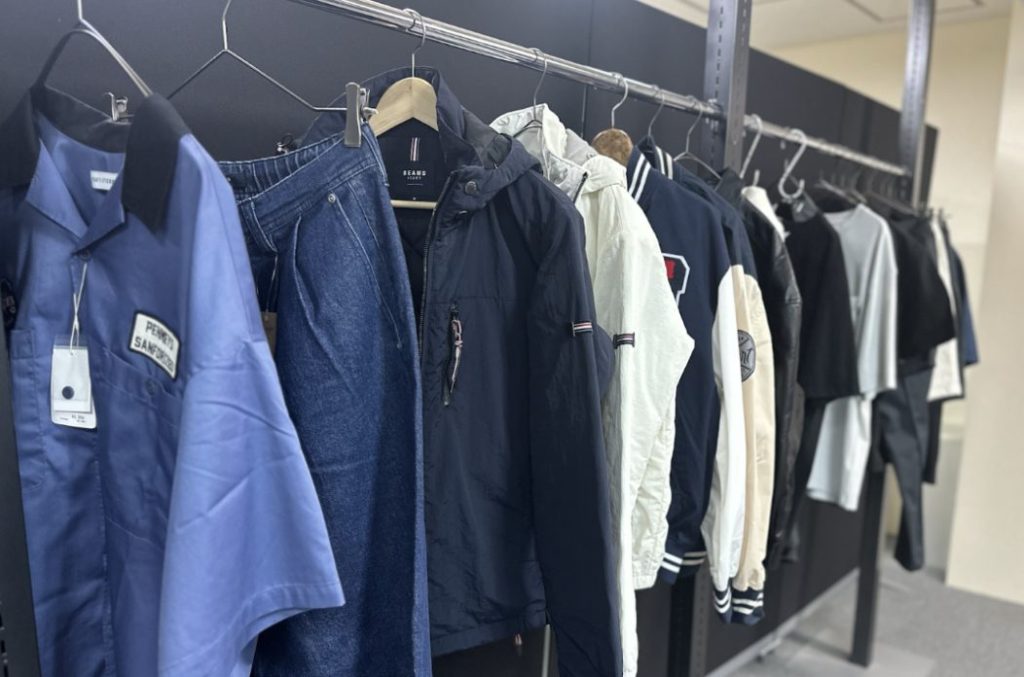
Figure 7: Products on display at hap headquarters
-- Do you plan to use aiESG in your future management strategies and new product development?
Ms Suzuki: Based on the results of the aiESG analysis, we plan to focus on developing products and services not only for primary products, but also for circular fashion as a whole, including secondary distribution and recycling. We expect that this will enable us to strengthen our management strategy based on sustainability and promote sustainability throughout the fashion industry.
-- What are some of the things you would like to work on in the future to promote sustainable fashion?
Ms Suzuki: By encouraging people to wear Kabaros sustainable materials and highly functional products, we want to promote the development of ESG products and services that focus on sustainability and wellbeing (e.g. clothes that promote health just by wearing them), not only in the fashion industry but also in various other industries. In particular, we want to contribute to the realisation of a recycling-oriented society by designing products based on recycling and secondary use.
-- If you were to recommend aiESG, what industries or companies would you say it is suitable for?
Mr Suzuki: aiESG is not just an analytical tool, but also enables comprehensive ESG assessments across the entire supply chain and is flexible enough to meet industry-specific needs. We therefore consider aiESG to be an ideal partner for companies that want to strengthen their ESG.
-- What further requirements or expectations do you have of aiESG?
Mr Suzuki: In the future, we expect to be able to reflect data in more real time and conduct more detailed analyses. We also believe that the enhanced evaluations that are also compatible with international standards and certifications will further strengthen our ESG response in our global operations.
From aIESG.
In this interview, we spoke to Mr Suzuki of hap about the background to the circular fashion initiative, the reasons for choosing aiESG, specific uses of the analysis and further developments for the future. We will continue to improve our services based on the valuable feedback we receive.
aiESG supports ESG analysis at the product and service level, tracing back through the supply chain. We also provide a wide range of support, from the basics of ESG-related frameworks to the disclosure of non-financial information. companies that need help with ESG-related work are welcome to contact us.
Enquiry:https://aiesg.co.jp/contact/
*Related articles*.
The Prime Minister's Award-winning hap and aiESG, a product ESG evaluator, collaborate on the development of apparel products that are truly human rights and environmentally friendly.
The aiESG initiative was featured in an article introducing the apparel venture hap in Nikkei Business.




